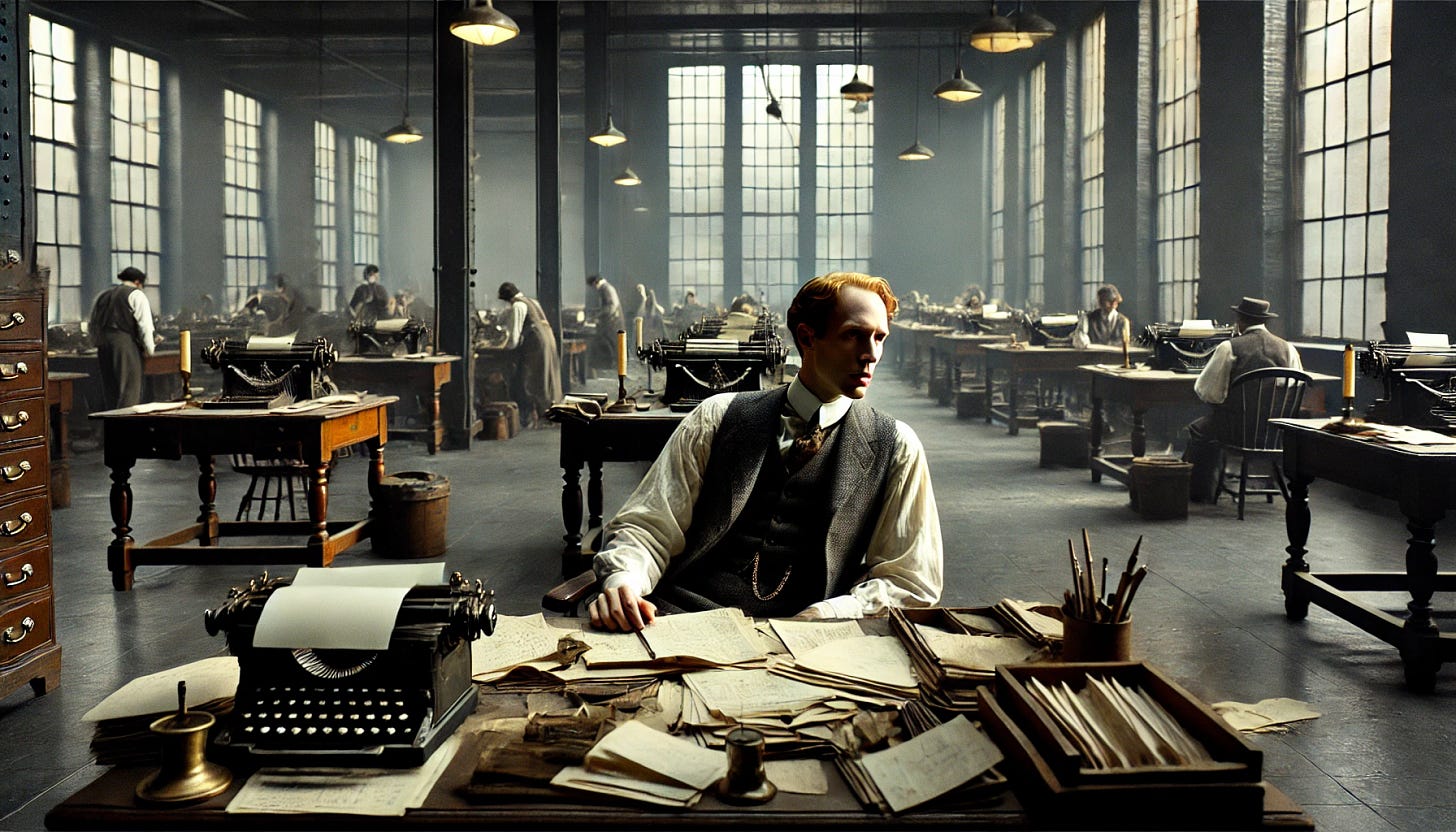Ever have one of those days where your to-do list just stares back at you and all you can think is, “I’d prefer not to”? That’s pretty much my vibe. Every day.
I’m kidding. That’s pretty much the vibe of Bartleby, the Scrivener by Herman Melville. If you haven’t read it, you’re in for a weird but strangely relatable ride. It’s about a Wall Street copyist who, out of nowhere, decides he’s not going to do his work anymore. But he doesn’t quit, he just calmly says, “I would prefer not to”—to everything.
And somehow, this story from the 1850s feels oddly modern. Bartleby might as well be the first person to ever quietly quit his job. Actually, I wouldn’t be surprised if someone told me that the first person ever to suggest quiet quitting was reading Melville during the pandemic.
But Bartleby is just done, and he doesn’t explain why. No rant, no drama, just a quiet refusal to engage. It’s almost like he’s saying no to the grind. The more I think about it, the more I see Bartleby in today’s world—burnout,—again—quiet quitting, people stepping back from the hustle. I totally get it.
From a writer’s perspective, Melville’s style is deceptively simple but packed with layers. The narrative voice is calm, even polite, mirroring Bartleby’s passive resistance. I like that and wish I had the same skill to reflect the story vibe in my writing style. It’s not flashy or overly dramatic, but that’s where the power lies. Every time Bartleby says, “I would prefer not to,” it’s delivered so bluntly and straightforwardly, yet it hits with the weight of rebellion. Melville doesn’t waste words, and somehow that minimalist approach feels deliberate, making Bartleby’s quiet defiance even more striking. There’s a lot of restraint in the writing, which gives the story its haunting, lingering quality. I really like that.
By the way, comparing this book with Moby Dick, it’s funny they feel like two sides of the same coin. In Moby-Dick, you’ve got Captain Ahab, totally consumed by his obsession with hunting down the whale—he’s all action, all drive. But in Bartleby, it’s the complete opposite. Bartleby is obsessed with not doing anything. Where Ahab charges forward, Bartleby just opts out. It’s like Melville’s exploring two extremes: the person who’s so focused on their mission that it ends up destroying them, and the person who’s so detached that they fade away.
What’s interesting is I’ve always seen and lived both of these sides in my own working life and I think you might have too. There are times where you get caught up in the Ahab mindset—pushing, driving, obsessed with achieving. And then there are moments when you feel more like Bartleby, just stepping back, disengaging, and letting things go. Both sides have their pitfalls, and it’s a constant balance to not swing too far in either direction.
It’s hard not to wonder if Bartleby was onto something. Or was he just lost? There’s this tension between his calm rebellion and the deeper question: is he taking control of his life, or is he spiraling out of it?
I think we’ve all had Bartleby moments, to be honest. Those times where you just hit a wall and feel like opting out of the constant demands of life. But what’s the line between healthy boundaries and giving up? In a world where we’re always told to do more, maybe the real question is, what happens when we choose to do less?
Actually, there’s a bunch of nonfiction books about working less and doing more meaningful work with less effort. Books like The 4-Hour Workweek and Essentialism are good examples of that.
Now, tell me something: have you ever felt like Bartleby? How do you handle it? Push through, or take a step back?
If you’re looking for a thought-provoking read, you might want to give “Bartleby, the Scrivener” a try. It’s amazing how much it resonates today.
Any thoughts here?





I was going to write some thoughts, but, on reflection, I would prefer not to.